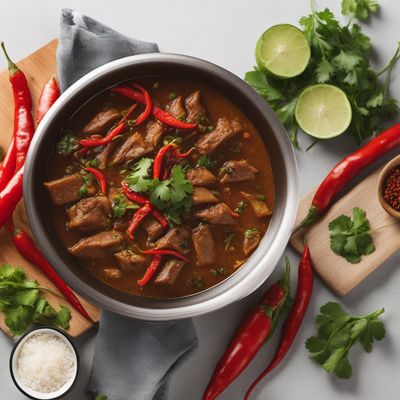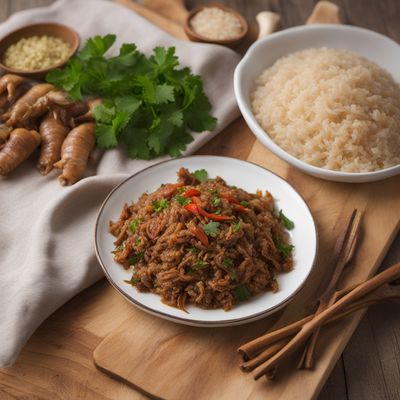
Ingredient
Goat liver
The Nutrient-Rich Delicacy: Exploring the World of Goat Liver
Goat liver is a nutrient-dense organ meat that is known for its deep, earthy flavor and tender texture. It has a dark reddish-brown color and a smooth, velvety surface. The liver is composed of small lobes and is relatively large in size compared to other organ meats. When cooked, it becomes soft and delicate, with a slightly grainy texture. The flavor of goat liver is robust and distinct, often described as rich, gamey, and slightly sweet. Its unique taste adds depth and complexity to a variety of dishes.
Origins and history
Goat liver has a long history of consumption in many cultures around the world. Goats were one of the first domesticated animals, and their liver has been a valuable source of nutrition for centuries. In many traditional cuisines, such as Middle Eastern, Mediterranean, and African, goat liver is considered a delicacy and is often featured in celebratory meals and festive occasions. It is also a staple ingredient in dishes like haggis in Scottish cuisine and liver pâté in French cuisine.
Nutritional information
Goat liver is a nutritional powerhouse, packed with essential nutrients. It is an excellent source of protein, iron, vitamin A, vitamin B12, and folate. A 100-gram serving of goat liver provides approximately 135 calories, 20 grams of protein, 4 grams of fat, and 3 grams of carbohydrates.
Allergens
Goat liver may cause allergic reactions in individuals with a known allergy to organ meats or goat products.
How to select
When selecting goat liver, look for fresh, bright-colored liver with a smooth surface. Avoid liver that appears discolored, has a strong odor, or feels slimy to the touch. Opt for organically raised goats or those from reputable sources to ensure the best quality.
Storage recommendations
Fresh goat liver should be stored in the refrigerator at a temperature below 40°F (4°C). It is best to use it within 1-2 days of purchase. To extend its shelf life, you can wrap the liver tightly in plastic wrap or place it in an airtight container before refrigerating.
How to produce
To produce goat liver, one would need to raise goats and ensure their overall health and well-being. This requires knowledge of goat husbandry, including proper feeding, housing, and veterinary care. It is recommended to consult with experienced goat farmers or agricultural experts for guidance.
Preparation tips
Before cooking goat liver, it is important to rinse it thoroughly under cold water and pat it dry with paper towels. Remove any visible membranes or connective tissues. To enhance its flavor and texture, marinating the liver in a mixture of herbs, spices, and acidic ingredients like lemon juice or vinegar can be beneficial. Goat liver can be pan-fried, grilled, sautéed, or incorporated into stews, curries, and pâtés. It is important to cook it properly to ensure it is safe to consume, as undercooked liver may pose health risks.
Substitutions
If goat liver is not available, beef liver or lamb liver can be used as suitable substitutes due to their similar flavor and texture.
Culinary uses
Goat liver is commonly used in various cuisines around the world. It can be grilled and served as a main dish, sautéed with onions and spices for a flavorful liver fry, or incorporated into stews, curries, and pâtés. It is also a key ingredient in traditional dishes like haggis, liver and onions, and liver pâté.
Availability
Goat liver is commonly available in regions where goat meat is consumed, such as the Middle East, Mediterranean countries, Africa, and parts of Asia. It can also be found in specialty butcher shops or ethnic markets in other regions.
More ingredients from this category

Equine liver
The Delicate Delight: Equine Liver

Wild boar liver
The Savory Delicacy: Wild Boar Liver

Rabbit liver
The Delicate Delight

Pig liver
The Rich and Nutritious Pig Liver
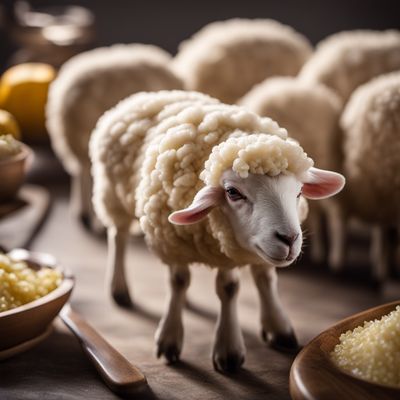
Sheep liver
The Delicate Delight: Sheep Liver
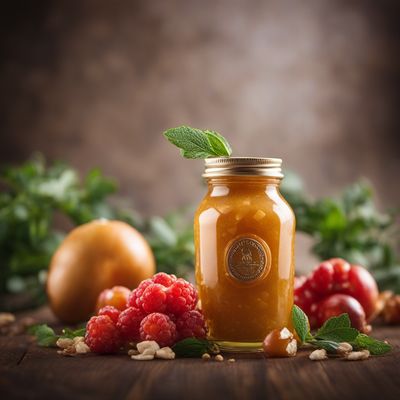
Deer liver
The Nutrient-Rich Delicacy: Exploring the World of Deer Liver
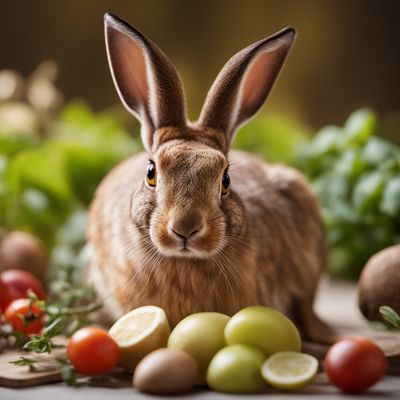
Hare liver
The Delicate Delight: Exploring the World of Hare Liver
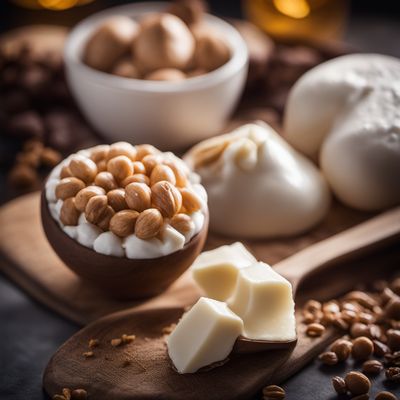
Bovine liver
The Nutrient Powerhouse: Bovine Liver

